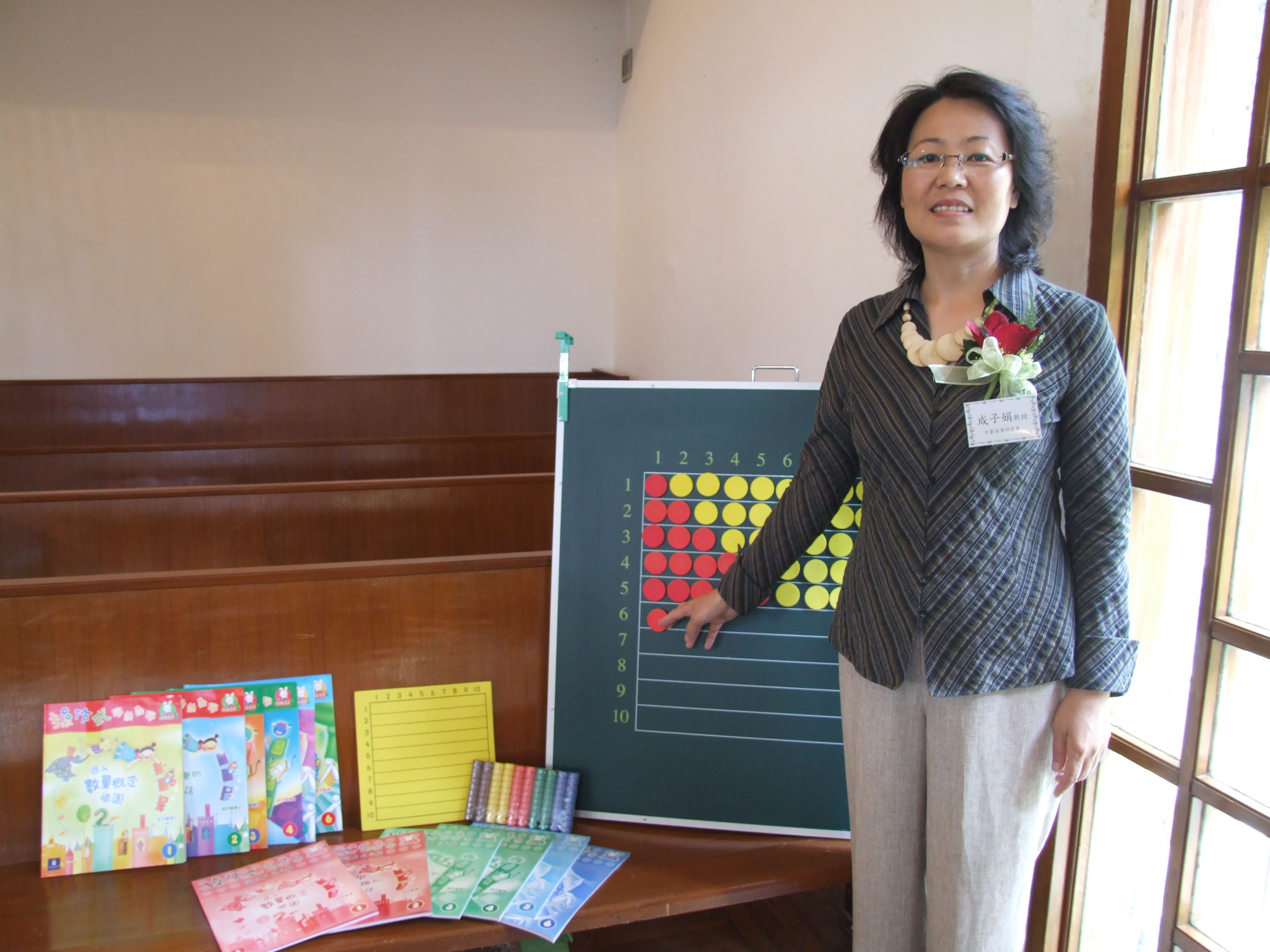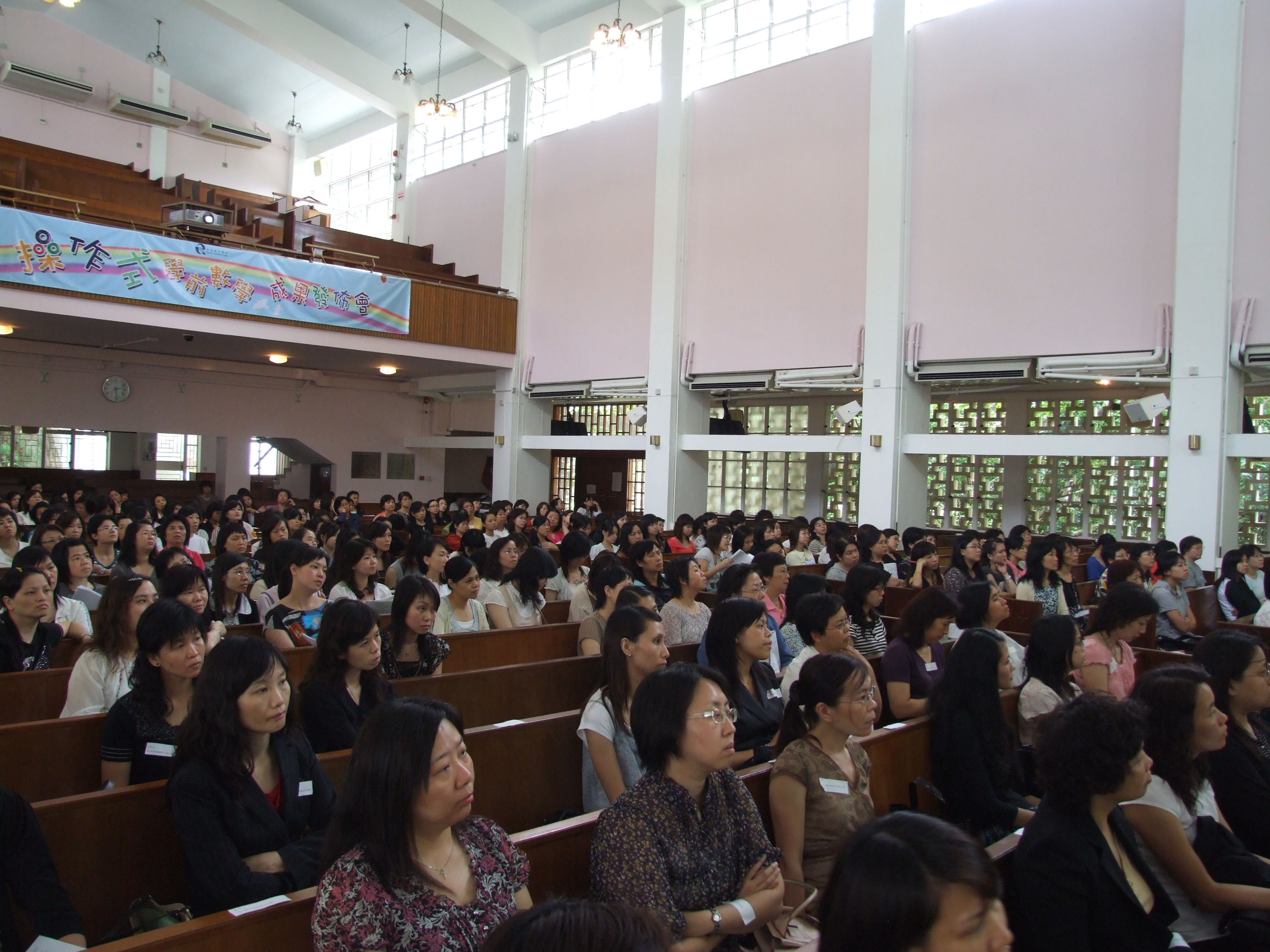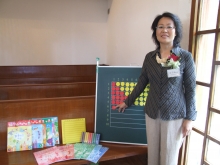CUHK
News Centre
CUHK Introduces Innovative Preschool Curriculum to EnhanceChildren’s Logical Thinking in Mathematics
The development of preschool mathematics education in Hong Kong has long been hindered by traditional teaching models advocated in the East and the West. Consequently, two extreme approaches have emerged in preschools: one relying only on fragmented games to teach basic mathematics concepts and receiving much criticism on its effectiveness, and one teaching primary school mathematics to preschoolers that does not match their cognitive development. In the preface of the book Operational Mathematics in Preschools, Prof. Hau Kit-tai, chairman, Department of Educational Psychology at The Chinese University of Hong Kong (CUHK), pointed out that although many international meta-analyses have found that children in Hong Kong, Taiwan and other Asian regions perform better in mathematics, many scholars believe that it is merely the result of continuous practice which is something they believe should not be encouraged.
In view of the situation, Prof. Cheng Zi-juan of the Department of Educational Psychology, CUHK designed the “Operational and Integrated Mathematical Learning in Preschools” (OIMLP) curriculum based on the cognitive characteristics of children aged between 2.5 and 8. A highly innovative and practical mathematics curriculum, it has been extensively developed through experiments and practices in the past 10 years, with over $4.3 million in funding from the Quality Education Fund (QEF) in 2000 and 2005.
With the second subsidy from QEF, a two-year project involving 76 preschools was launched in July 2006 to put the OIMLP curriculum into practice. The project provided training to more than 870 preschool teachers, benefiting around 8,000 preschoolers. Through meetings with principals, training classes and teaching workshops, as well as school visits, the teachers learned the basic principles of preschool mathematics teaching and put the approach into practice.
CUHK announced the research findings of the project today (18 July) to over three hundreds preschool educators. A number of principals and teachers were invited to share their teaching experience in using this approach. On the occasion, Prof. Cheng said, “The OIMLP curriculum can help develop children’s logical thinking and their skills to effectively solve mathematical problems in daily lives. Instead of simply teaching mathematics concepts, it also enhances children’s abilities of observation, analysis and comparison, imagination and deduction.” Furthermore, the curriculum stresses the importance of the inner relationships among different mathematics concepts to the whole mathematical thinking process. Under teachers’ modeling, these concepts are well integrated in various subjects and are systematically illustrated to the children by allowing them to use different learning tools and to take part in a multitude of activities (see the appendix). For example, in traditional mathematics class, children learn digits 1 to 10 by memorizing and matching symbols with the relative object quantities. In this curriculum, Prof. Cheng uses a series of self-designed fairy tales named “The Number Kingdom” to structurally teach children reasoning and to understand the relationship between digits and quantities by reading interesting stories.
Prof. Cheng expressed her sincere gratitude to the Chinese University, Prof. Lee Chi-kin, dean of the Faculty of Education, CUHK, colleagues in the Department of Educational Psychology and the Hong Kong Institute of Education for their kind support to the project. Miss Lau, a teacher from the AL & VS Education Fund Gordon Pei Kindergarten shared how the project has changed her ways of teaching, “When we received mathematics education in childhood, mathematics concepts were taught separately from other subjects. However, the OIMLP curriculum encourages me to teach mathematics through the use of stories and other activities. Children now understand that mathematics can be applied in their daily lives and find the subject very interesting.”
Miss Lok, a teacher from the Church of Christ in China Wanchai Church Kindergarten / Nursery said, “It is difficult to teach children abstract mathematical concepts and to arouse their interest in mathematics by using traditional teaching methods. With this curriculum, children are encouraged to learn by engaging in physical activities. Mathematics is no longer abstract to them.”
Through training programmes and practice, teachers have enhanced their understanding of the cognitive development of children, which in turn have enriched their teaching skills. Setting an important milestone in the development of preschool mathematics education in Hong Kong, the OIMLP project is effective in improving teaching quality and promoting the development of children’s logical thinking.
Learning tools used in the OIMLP curriculum, which is designed by Prof. Cheng Zi-juan of the Department of Educational Psychology, CUHK







